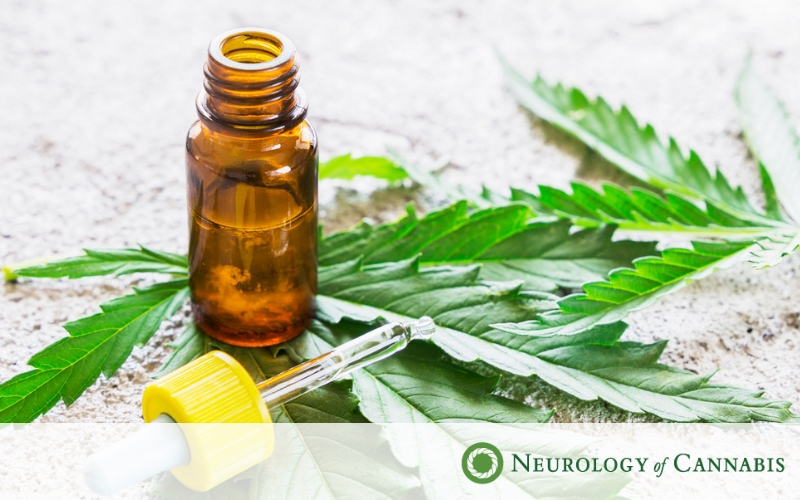CBD is making headlines. Since the Food and Drug Administration approved Epidiolex, the first prescription medication derived from CBD, more people than ever are curious about CBD oil.
Florida residents can obtain CBD through the state’s medical marijuana program, but what is it exactly? What can it do? Is it the cure-all some are making it out to be? With all the buzz about CBD, it is important to take a close look at what CBD is, the myths and facts around CBD, and the best way for patients to incorporate CBD into their medical care.
What is CBD?

CBD is short for cannabidiol, and it is one of the many chemical compounds found in the marijuana plant. CBD does not have the range of psychoactive effects experienced with THC. Although CBD may reduce anxiety, CBD alone will not get you high. The other major cannabinoid chemical compound found in marijuana, is tetrahydrocannabinol (THC). THC is responsible for the high many associate with marijuana use.
CBD interacts with the body’s endocannabinoid system. The endocannabinoid system produces endocannabinoids, which are neurotransmitters that bind to cannabinoid receptors throughout the body. The endocannabinoid system plays an important role in several functions, including immune response, pain, sleep, and regulating appetite. CBD’s interactions with the endocannabinoid system provide several powerful biological effects, including pain relief, reduced anxiety, and fewer seizures in patients with certain types of epilepsy.
CBD Myths and Facts

To understand CBD and how it can be an effective part of a physician-recommended medical marijuana treatment plan, patients should take a look at the myths and facts around CBD. Here are a few we have identified:
Myth: CBD from industrial hemp is just as effective as CBD from medical marijuana plants.
Fact: CBD can be derived from industrial hemp or from the whole marijuana plant. However, industrial hemp may be of questionable quality and origin. Studies have shown that the labeling on CBD oil derived from industrial hemp is sometimes inaccurate, making it difficult to know exactly how much to take.
Myth: CBD should be taken alone to avoid the high of THC.
Facts: Medical CBD is typically derived from the whole marijuana plant and has some level of THC. Even low levels of THC can enhance the effect of CBD, which is sometimes referred to as the “entourage effect.” The chemical compounds work better together than they do in isolation. THC, like CBD, has therapeutic properties. An experienced medical cannabis physician can help patients determine the appropriate ratio of THC to CBD to achieve the best results.
Myth: CBD is a sedative.
Facts: CBD is not sedating. CBD makes many patients feel more relaxed, but it also enhances alertness. Some marijuana strains that are high in CBD may also contain terpenes that do have a sedative effect. Terpenes are organic compounds found in many plants, including marijuana.
Myth: CBD is medicinal and THC is recreational.
Facts: Both CBD and THC have medicinal properties. CBD does not cause a high, which is why many associate it with medical marijuana treatment and why recreational users typically do not choose marijuana strains that are high in CBD. The combination of CBD and THC can be helpful for several medical conditions, including PTSD, depression, chronic pain, and more.
Myth: CBD is just for those with epilepsy.
Fact: A significant amount of the research that has been done on CBD has focused on epilepsy. This however, does not mean that it is only effective for those with epilepsy. Since marijuana is still considered a Schedule I drug by the federal government, it has made research complicated for scientists. Initial research shows that CBD may be a useful treatment for several conditions, including:
- Managing chronic pain
- Reducing anxiety and depression
- Alleviating the side effects of cancer treatment
- Lowering blood pressure
Research in medical marijuana is ongoing. The best approach to using CBD oil and other medical marijuana treatments is to consult a doctor who knows the latest research and understands how CBD interacts with your endocannabinoid system. Dr. Daniel P. Stein at Neurology of Cannabis in Sarasota, Florida, can help you navigate these treatment options and provide unbiased up to date information on how medical cannabis may help your condition.
CBD Treatment Options

Patients considering CBD treatment have several options available. These include:
- Vaping. Vaping is a simple way to use CBD oil. Florida residents can purchase oil blends which are heated by a vaporizer. Patients inhale the vapor, which does not have the odor associated with smoking. Vaping is a discreet, safe way to use medical cannabis.
- Tinctures. Tinctures are liquids that patients typically place under the tongue using a medicine dropper. Tinctures make dosing simple, so patients can make adjustments as recommended by their doctor.
- Lotions. Cannabis-infused lotions can provide targeted relief for painful joints or other areas of inflammation.
- Patches. Patches also provide targeted relief, and the cannabis is slowly absorbed over time.
To determine the delivery method and best ratio of THC to CBD, patients should consider getting treatment recommendations from an experienced medical marijuana physician. Dr. Stein of Neurology of Cannabis has more than 25 years of experience and has a deep understanding of how medical marijuana can treat a variety of conditions.
Professional Medical Marijuana Care
Dr. Stein’s practice provides a high level of care in a friendly, professional environment. He takes the time to review the medical history of every patient and discusses any treatment questions or concerns they might have before making treatment recommendations.
Neurology of Cannabis also keeps pricing simple. Instead of paying for every visit, we require an annual fee of $250, which includes an initial consultation, a treatment plan, renewals for the entire year, and access to the office staff for medication adjustments.
CBD oil remains an effective and popular treatment tool. Find out if it is right for you by contacting Neurology of Cannabis today.


